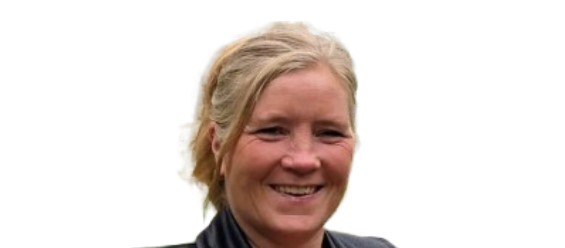Holloway Friendly head of underwriting and claims Helen Jacobs has told advisers they should contact her if they feel the mutual is not meeting its eight underwriting promises.
Jacobs (pictured) told Health & Protection that she would personally look into any issues raised by intermediaries concerning the series of pledges made earlier this week.
Earlier this week Health & Protection reported on Holloway Friendly making its eight underwriting promises to advisers and their clients, which include attempting to match better terms from other insurers and for advisers to challenge it if they disagree with a decision.
The promises are designed to ensure the underwriting experience is “equally caring, efficient and hassle free, with as many people underwritten as possible” and the mutual wants to build confidence among advisers that it can deliver against them, Jacobs said.
The move was welcomed by advisers with Jacobs in particular singled out for praise.
Inspired by the PDG
Speaking to Health & Protection about the promises, Jacobs emphasised signing up to the Protection Distributors Group claims charter inspired its underwriters to come up with their own promises.
“These were to make sure our underwriting experience is equally caring, efficient and hassle free, with as many people underwritten as possible,” Jacobs said.
“We’re very focused on listening to adviser feedback and acting on it, whether it’s changes and improvements we’ve made to our products, replacing our underwriting engine or listening to feedback around harder to insure clients and making changes to help more people get protection.
“And the promises really came out of our day-to-day experience with advisers, them telling us what they like and don’t like.”
Jacobs added advisers can pick up to the phone and get in contact and speak to any of its underwriters.
“We pride ourselves on being very accessible. Those conversations give us really valuable insight, and we encourage the team to collect feedback and share it,” she continued.
“As an example, we have regular underwriting forums where we share adviser challenges and ideas and turn them into opportunities, one of which was our promise.
“We want advisers to tell us what they think we can do better so we can continue to build on our promises.”
Putting commitments out to market
In terms of why the promises were necessary, Jacobs said she sees them as a commitment, and the mutual is happy to put them out for the market to see.
“By sharing them it helps give confidence to advisers that we’re confident we can deliver against them, and I think it helps us to differentiate ourselves,” Jacobs continued.
“There’s a perception of underwriting being strictly rules-based, of being ‘computer says no, we can’t insure you’.
“We don’t want to be seen that way, so we’ve invited advisers to challenge us if they think we’ve made the wrong decision. We know things aren’t always cut and dry, and sometimes they’ll be aware of something that we’re not.
“Of course I can’t guarantee we’ll always change a decision, but I can guarantee our underwriters will carefully listen to any challenges, and if we get information that allows us to change our decision, we will.”
Jacobs cited another commitment of always calling an applicant as the first port of call where it needs information.
“Our underwriters love the opportunity to have a friendly chat person to person because they can often get information they need to get that person on risk much quicker,” she added.
“We’ll only contact a medical professional as a last resort because we know this takes time, but if we do need to see medical information, by chatting with our applicant we can ask what information they have they can photo or screen shot for us, and that might be enough.
“If we didn’t pick up the phone, we wouldn’t have those sensible conversations and the result could be a more drawn out process.”
Being held to account
But Jacobs was equally mindful of advisers holding the mutual to account on promises made.
“The reality is, we have a team committed to delivering a caring, efficient and hassle-free service and it’s embedded within our processes, and of course it will form part of monitoring and quality checking,” she said.
“We’ve put it out there for the market to see. If we don’t meet these standards, I’m sure we’ll soon know about it and I’d encourage advisers to let me know, so I can personally look into it.”
Empathy with advisers and clients
And in terms of what the rest of the sector can learn from the mutual’s promises, Jacobs pointed out that empathy lies at the heart of the mutual’s approach.
“There’s already a lot of great work in the industry, and groups focused on improving standards, like the Income Protection Task Force and the Protection Distributors Group,” Jacobs continued.
“Lots of people in the industry, including other providers, are focused on improving the experience for advisers and customers.
“Our approach is very much based on listening to feedback and putting ourselves in the shoes of advisers and their clients. Often it’s the simpler things that have the greatest impact.
“We know we do lots of good things and we just wanted to get this across to the market in a tangible way. As an industry, we need to keep challenging ourselves, improving, making it easier for more people to get insured.”
